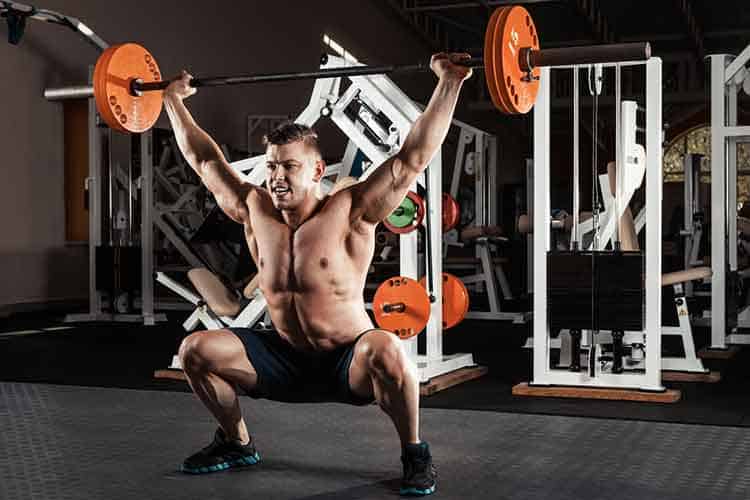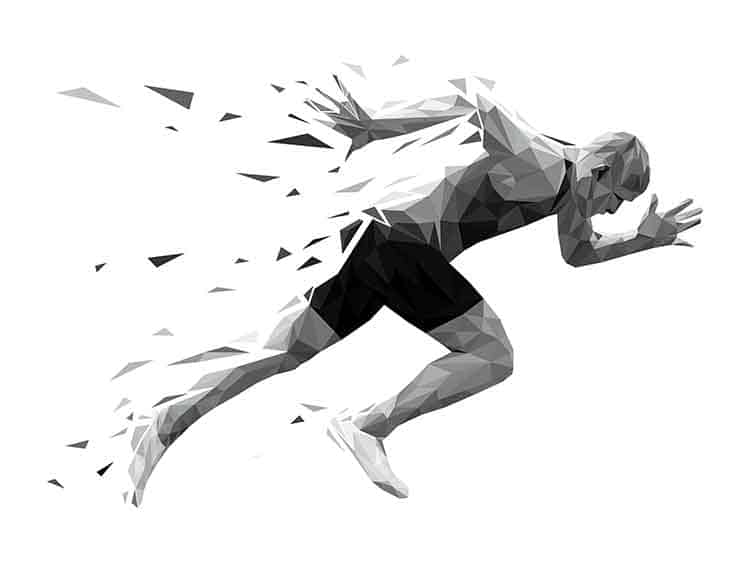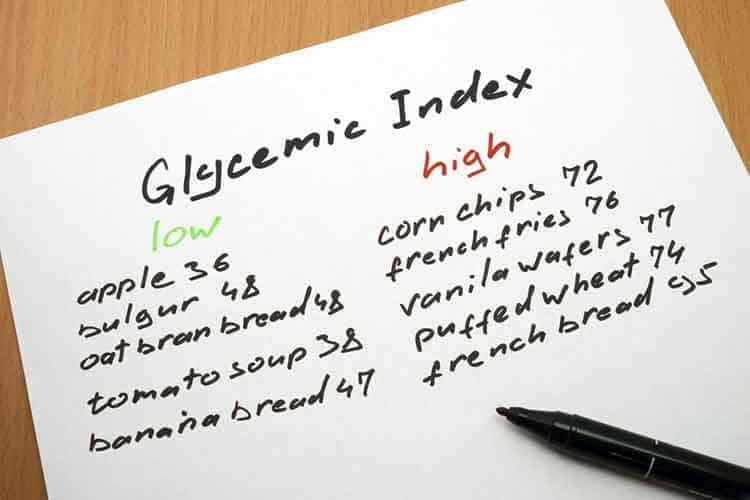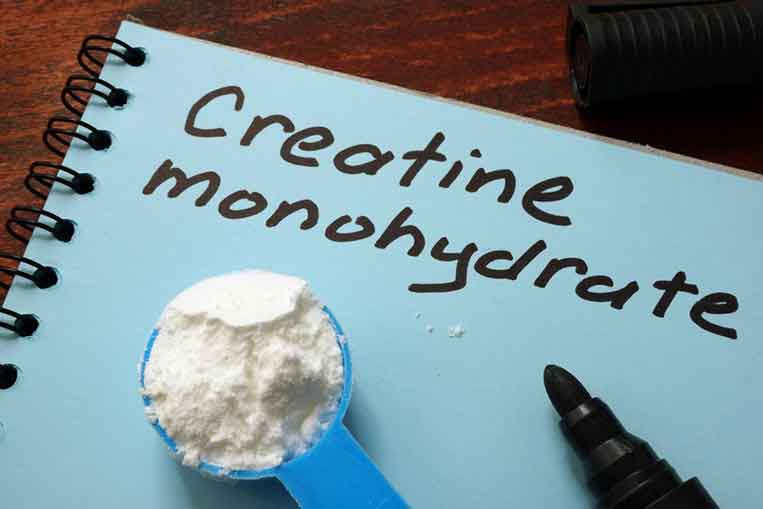Fast Carbs After a Workout? Carbohydrates are the present day villain of the macronutrients. People following keto diets have decided to forego them completely, relying on their livers to synthesize ketone bodies from which they derive their energy.

One particularly insane breed of people, known as ketogenic athletes, do this while training and competing in their chosen sports. Not just lawn bowls and croquet either…real sports where you have to move and everything.
If you’d have told me 15 years ago that there would one day exist a whole category of athletes who ate less than 50 grams of carbohydrates a day, I’d have laughed in your face and explained in thoroughly patronizing tones how important glycogen is for athleticism.
Content Table
So, Should You Eat Carbs After a Workout?
Alas, here we are in 2020, and unless the zombie apocalypse has transcended pop-cultural cliché to become tangible reality, these people live and breathe.
Power to you if that’s your thing, but when it comes to bulking up and building muscle with food, low-carb diets have a long road of scientific research and empirical evidence to travel before carb-inclusive diets can be challenged for their efficacy.
Fair enough, but we should obviously stick to low and medium-GI carbs, right? So we don’t spike our blood sugar and damage our insulin, destroy all life on Earth, and blow up the Universe?
Actually, I’m here to make the case for fast carbs and eating carbs after a workout in general.
Like donut-fast!
When you should eat them, and how they will help you make progress, build more muscle, and burn more fat, faster.
Yes, not only will this not hurt your gains, it will improve them.
For Those Who Lift – Eat Carbs
If reading my work gets you upset, confused, or it contradicts something some other “expert” told you, then remember this:
Unless you lift weights on a regular basis and want the most efficient results, I am not here for you.

If you’re an LCHF zealot (low carb high fat), and what I say hurts your feelings, or has you sharpening your favourite carb-free pencil in order to draft a strongly worded response letter, you’re better off saving the effort, because I. Just. Don’t. Care.
It’s not because I think what you’re doing is wrong (it is, though). It’s because your physique goals clearly aren’t as important to you as some hyped-up, under-researched, in-vogue, extremist diet.
Keto is the duck-face selfie of the dieting world.
If you’re not a lifter, and you’re trying to lose weight, and low-carb works for you because you can adhere to it, then congrats. That’s how you’re hitting your body goals, and I don’t deny its merit. But don’t try and convince people that it’s magic.
And don’t tell me you can build muscle and strength without carbs just as quickly as you can with them. As a side note you may also want to try a natural bulking supplement such as D-Bal as well – trying to bulk up with food alone is extremely difficult.
Intermittent Fasting
By the way, using Intermittent fasting (IF) and even intermittent Keto, does not qualify you as a zealot.
In this case, I completely acknowledge that you are applying them as tools – that work for you – to achieve a fat loss objective.
Point is, you’re using them intermittently.
Calories In Calories Out
However, at the end of the day, scientific and empirical data still overwhelmingly support the case for CICO (calories-in-calories-out) – i.e. the balance of energy intake versus energy expenditure – as being the ultimate driving force of weight loss and weight gain.
Any form of diet is really just a way for you to control that CICO balance. Since adherence is the key to success, whatever you can stick with is that which will get you the results.

Athletic Metabolism
Athletes use energy more efficiently than sedentary people do. In fact, I’d go as far as saying that an athlete uses, and stores, energy differently to a sedentary person.
In basic terms, when a sedentary person with poor insulin sensitivity eats a fast carb-rich meal, they may very well put on weight in the form of body fat.
If the same meal is eaten by someone who hits beast-mode in the gym 5 days a week, they are going to store the sugar as muscle glycogen, increase muscle cell volume, trigger an anabolic response, and recover that much faster for the next killer session.
For muscle hypertrophy, all three macronutrients have their place, and fast carbohydrates can make a big difference to your progress.

High Glycemic Index Carbohydrates – Fast Carbs
Fast carbs, otherwise known as simple carbs, are those that are quickly digested and broken down into their simplest form of sugar to then be absorbed into blood stream
The Glycemic Index is a numerical rating system which assigns a value to how fast and how much different foods raise blood sugar.
The reputation of simple carbs has been dragged through the the mud because a hog load of people have abused them to the point where we now have all sorts of insulin resistance related health pandemics.
I won’t go any deeper into that except to say that fast carbs are not evil. They are often misunderstood, and they are definitely misrepresented.
For you, however, they can be very very useful.
Post-Workout Glycogen Replenishment
When you exercise regularly, a good portion of the sugar in the carbohydrates you eat are stored in your muscles as glycogen. Most of the remainder is stored in you liver.
For physical training, muscle glycogen is a primary source of energy. In fact, during anaerobic respiration, it is critical for optimal muscle performance.
Glycogen is simply a long branched chain of glucose molecules linked together. As you workout, glucose molecules are decoupled from the polysaccharide chain and used to generate ATP (adenosine triphosphate).
Low intensity workouts will not use as much glycogen as high intensity training because during aerobic respiration, your body can oxidize fatty acids as fuel to generate ATP. This leads a lot of people to the mistaken assumption that low-intensity aerobic exercise is the best option for losing fat.
During high-intensity exercise, which resistance training qualifies for in most cases, you might burn up to half or even three-quarters of your muscle glycogen.
IF optimal muscle growth is important to you, then the quicker you replenish that glycogen, the better.
Research unsurprisingly supports the practice of consuming high-GI – “fast” – carbs within an hour of finishing your session, as part of your post-workout meal/shake.
Not only will this replenish your glycogen levels for the next time you hit the gym, but it will help to keep your energy levels up for the rest of the day. This is particularly useful for people who workout before work, during their lunch hour or any time where post-workout fatigue would be a hindrance.
It’s also likely that there is a benefit to taking fast carbs as soon after your workout as possible, as it might enhance the absorption into the muscle tissue. This absorption ratio becomes lower and lower the longer you wait.
Don’t panic though, anytime within the first hour after you complete your workout is sufficient.
Perhaps the most important benefit of speedy post-workout glycogen replenishment is the anabolic advantage.
The glycogen that gets stored in your muscle cells draws water into them. Therefore, when you take fast carbs post-workout, the glycogen helps to extend the muscle pump by hydrating the cells.
While this looks good, increasing muscle cell volume is one of the triggers for anabolic muscle growth processes to begin. The hyperaemic pump from the mechanical action of lifting weights starts this in the gym. Increasing cell volume via fast carb replenishment post-workout has a compound beneficial effect.
How Much and What Carb Source to Choose?
People often find success by using the post-workout carbohydrate replenishment as their “cheat” meal/snack for the day.
That’s because simple dextrose (common glucose) rich foods are the best for replenishing glycogen quickly as it does not need to be digested and is absorbed directly into the bloodstream for transport to muscle cells.
It’s often found in decadent treats like candy and donuts, making them the perfect post-workout cheat meal that actually improves your results.
Hopefully you can see here that it’s a case of simple timing which allows you to satisfy your craving for sugar, while furthering your progress from the weight lifting session.
What About Fruit?
Some people think fruit is the healthy choice after a workout and will provide the same glycogen replenishment as pure glucose/dextrose based foods. It actually goes a bit deeper than that.

Fructose ends up being converted to glycogen by the liver which then keeps it for times when blood sugar drops too low. It therefore doesn’t make it to the muscles to be stored there, and as such doesn’t tick all the boxes discussed above.
High fructose corn syrup has been demonized as the blood-sugar spiker of the century, but it’s actually a slower form of sugar than dextrose, which is essentially pure glucose (hence, why it needs no digestion and doesn’t automatically head to the liver).
Table sugar, the type you put in coffee, is also about half fructose, half glucose.
While many people in the bodybuilding/athletic community warn against the consumption of fruit post-exercise because fructose heads to the liver, it actually plays and interesting and advantageous role.
If liver glycogen is not replenished quickly, it will take up some of the glucose you ingest post-workout, leaving less for your muscles. Therefore fruit actually provides the liver glycogen through fructose, leaving any glucose to be taken up by muscle tissue.
Bear in mind that the sugars in fruits are not 100% fructose. Many contain a good amount of glucose and sucrose in them and so can contribute to muscle glycogen restoration as well.
Sucrose, which is a 2:1 or 1:1 ratio of fructose and glucose, can replenish muscle glycogen as well as glucose alone and potentially better given the liver glycogen buffering of the fructose.
In short: Sucrose and glucose can replenish muscle glycogen, and fruit might help conserve the glucose you ingest for that purpose.
Back To The Sweets
Look at the label and you should find the ingredients you need.
Regular corn syrup is good as it is absorbed like glucose, and dextrose is the best form going. As influencers like Dr. Jim Stoppani often recommend, Haribo Gummy Bears, Wonka Pixy Stix and donuts are great post workout snacks because of their dextrose content.
If you go the donut route, make sure their sweetener of choice is dextrose. Personally, I enjoy going through the candy/sweet aisle at the grocery store and picking out the products with the highest corn syrup and dextrose content.
Depending on the intensity of your workout, you can take fast carbs in the range of 20 to 60 grams.
Split the dose up a bit over the hour if dumping it in your system makes you crash a little. Also you can take a mixture of high and medium GI carbs to prevent this, which works a little like taking a mix of whey isolate and casein protein to extend the release of proteins into your system.
When doing this with carbs, you smooth out the blood sugar spike a little to provide a more sustained increased blood sugar level, rather than a sudden spike that may cause lethargy.
Protein-wise, take your regular scoop of 30 to 40 grams, and add about 5 grams of BCAAs if your stomach sits well with it.
Carnitine, which I’ll discuss briefly below (and which has an article dedicated to it) is also a good post-workout supplement. It will help your body recover from the workout, but it will also increase post-exercise fat oxidation.

Insulin – Glucose – Carnitine – Creatine – Aminos
Insulin, as you probably know, is released in response to changes in blood sugar levels. For active people, their insulin’s actions tends to be sensitive to the body’s energy storage requirements.
That means insulin attaches to certain receptors on the surface of muscle cells. This mediates the uptake of glucose into those cells, but that’s not where insulin’s role ends.
Insulin also mediates the uptake of amino acids, creatine and carnitine into the muscle tissue – all of which are very important for optimal muscle performance, growth and fat burning.
Leucine, the principal branched-chain amino acid (BCAA), even stimulates an insulin release when you consume it.
A mixture of carbohydrates and leucine-rich protein will therefore trigger a strong insulin response, which will help shuttle both glucose and proteins into the muscles. If creatine and carnitine are also consumed, their muscle content will also rise.
Creatine accumulates in muscles as a creatine-phosphate reservoir which is integral for the production of ATP during exercise.
Carnitine is also involved with energy metabolism. By increasing muscle carnitine content, you can prolong fat burning activity and preserve muscle glycogen. This helps reduce fatigue during exercise, lactic acid accumulation, post exercise fatigue soreness and of course body fat storage.
Final Thoughts on Eating Carbs After a Workout
There isn’t much of a case to be made against the efficacy of fast carbs post-workout when optimal muscle growth gains are your main objective.
Even the most triggered fundamentalist keto zealots can’t argue with the massive quantity of scientific and empirical evidence in favour of glycogen replenishment.
There are times when you might not consume carbs straight after a workout. One of those times is when you have completed a particularly low intensity session.
Another time is if you are almost wholly removing carbs from your diet for an intermittent low-carb cycle in order to get maximum fat loss results.
Although this can help in certain situations, there will be minimal benefit gained from avoiding the immediate post-workout glycogen replenishment. What’s more, the addition of carnitine to the mix might prevent any possible weight gain in any case (should you be in carbohydrate caloric surplus).
Nonetheless, if you do decide to go carb-free for a period of time, you must get your post-workout protein and amino-acids in, They will trigger the all important insulin spike, which will drive the nutrients into your muscle cells in lieu of sugar induced insulin release.
For people who are not specifically cutting carbs from their diet, there is absolutely no excuse for missing the post-workout fast carb hit.
So yes… you can eat carbs after a workout!
What’s better than being able to have a guilt-free treat, that can actually assist you in hitting your muscle building and strength targets?
Answer: nothing.
